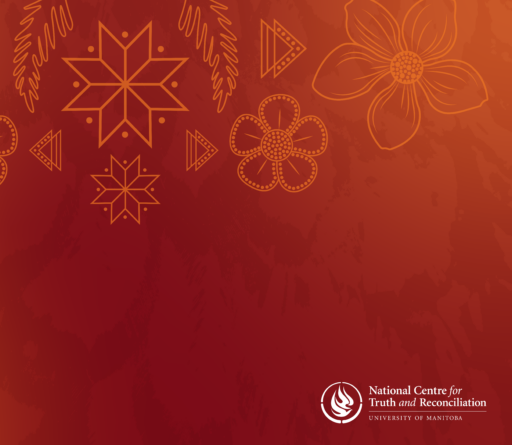College Blog
By: Craig Roxborough, Registrar and CEO
Last time I was here writing about our interest in collecting data to better understand the demographic make-up of the profession, I acknowledged that we needed to do more to build trust with you if we wanted to be stewards of this personal information.
That blog focused on the ‘why’ – why this information is necessary if we are going to tackle important questions related to our commitment to equity, diversity, and inclusion (EDI).
This blog focuses on a different theme that emerged from the feedback you provided last fall – how we store and share demographic information. We heard that given the sensitive nature of this information, we needed to be clearer about how we protect your privacy and ensure this information is not improperly accessed or used.
So, I wanted to take some time to explore these issues, share details about what we currently do and talk about the options we have going forward.
My hope is that we will continue to hear from you and find a path forward that helps our organization answer some important questions, while instilling confidence in how we manage your information.
How We Store Your Information
Just like physiotherapists are bound by privacy and confidentiality rules when treating patients, we too are bound by laws that structure how we manage, share and protect your information. Over your lifetime as a PT, the College will collect and manage a lot of information about you – particularly as it relates to our regulatory processes – and we are required to protect this information. This includes strengthening our digital systems to protect them from external attacks.
We already collect some demographic information from you on a mandatory basis, including, for example, your gender, birth date, ability to practice in different languages, pronouns, etc. This information is directly linked to your profile within our internal system and is typically collected because we are either required to share this information with government or because we are obligated to post this information on the Public Register.
We also collect some additional demographic information on a voluntary basis. For example, we’ve been asking those who are comfortable to share information about their racial identity or whether they are Indigenous.
Recognizing the personal and sensitive nature of this information, it is treated quite differently within our system. More specifically, apart from our data team, it is not directly accessible by staff – even as Registrar I do not have direct access – and is kept separate from all other regulatory processes.
How We Disclose Your Information
We have reporting obligations to the provincial government to support their efforts in health workforce planning. Additionally, we have a data sharing agreement in place (like many regulators) with the Canadian Institute of Health Information (CIHI) to support their efforts in health workforce planning at the national level and their newer efforts to start examining systemic discrimination within our health systems.
In both cases we only share the specific data points that are requested, and we do so in a way that protects your identity. The information is shared using unique identifiers that are separate from your profile within our system or on the Public Register. Only we have the code that connects your identity to the information we report on. This helps our partners to understand the profession without revealing who any individual is.
Thinking About Possible Futures
We know there is still more engagement and discussion to come as we contemplate what additional demographic information might be helpful to collect from you. We also recognize that depending on what specific information we ask for, your thoughts about the right way to collect and store it may change.
But we also know that how we collect and store the information changes what questions we can answer and so I wanted to highlight the two general approaches we have available.
We can continue to collect information as part of our annual renewal process, even in a voluntary way. The information would be stored in our system and attached to your internal profile but with different access protocols depending on the sensitivity of the information and still separate from our regulatory processes.
The benefit of this approach is that it not only allows us to answer general questions about the composition of the profession, but with sufficient participation, it allows us to begin to look at our own processes and evaluate whether they are equitable and fair.
Alternatively, we can follow the lead of some of our regulatory peers and conduct an anonymous census. This would be a process entirely distinct from our annual renewal and internal systems. It would be fully independent and fully anonymous. If we have great participation, we will be able to really understand who comprises our profession. This will help us evaluate questions like whether the profession reflects the population it serves and whether our College reflects the profession we regulate.
What’s Your Take?
I’m hoping you will take a moment to share your thinking about the options available to us. Would you participate in an anonymous census? Does knowing how we store and manage demographic information collected through the renewal process make you more likely to want to share this information with us going forward? What additional information can we share to help build confidence and trust in our process?
Let us know in the comments or send me an email at registrar@collegept.org so we can be informed by your perspectives as we contemplate a path forward and seek to achieve the important objectives I set out in the last entry in this series of blog posts.










more than willing to participate in an anonymous census. Trust the CPO to protect my privacy. No concerns.
I would happily participate in an ANONYMOUS census such that this information could be shared with and inform CIHI, and to a lesser extent, the CPO. I think Mr Roxborough has highlighted a key issue in his two blog posts regarding the CPO’s potential collection of sensitive information: registrants do not trust the CPO. He has made a decent case for why the CPO might want this information and some of the potential uses it might have for the information. I am guessing that many registrants also fear how this information could be used against them….I know that I do.
Assurances from the CPO about how they will safeguard the information and that it will only be used to benefit our profession ring hollow. I feel that if the CPO’s motives for having this information are as benevolent as Mr.Roxborough indicates (and I do believe that his intentions are benevolent….but this is a large bureaucracy which will undergo many leadership changes during the course of a PT’s career span), the priority should be on establishing trust versus establishing my racial identity. Most, if not all, PTs would voluntarily share this information to an institution they trust. However, if we are obligated to share this type of information in the future, I feel it will further erode a relationship in desperate need of repair.
I am a cis-gendered, white male and a foreighn-trained physiotherapist. The process I needed to go through when I came to Canada many years ago was fairly smooth and easy. As I spoke with other foreighn-trained physiotherapists who had a darker skin and a name that was not familiar to the Anglo-Saxon mouth, it became clear that my integration into Canadian physiotherapy community would have been entirely different if I had not been white and male.
My objections to the question about race stems from the, I think widely accepted, notion that race is a social construct. We are all a hodgepot of ancestry but there is only one human race, which includes people of different sizes, skin colour, faiths, hair structure etc.
I think that the questions that CIHI is after (I was told that CIHI wanted this ionformation) are about ethnicity and there is no denying that ethnicity and skin colour are often associated. Race in the context of ethnicity is an ugly word and should be left to the racists and those whoi feel racialized by them